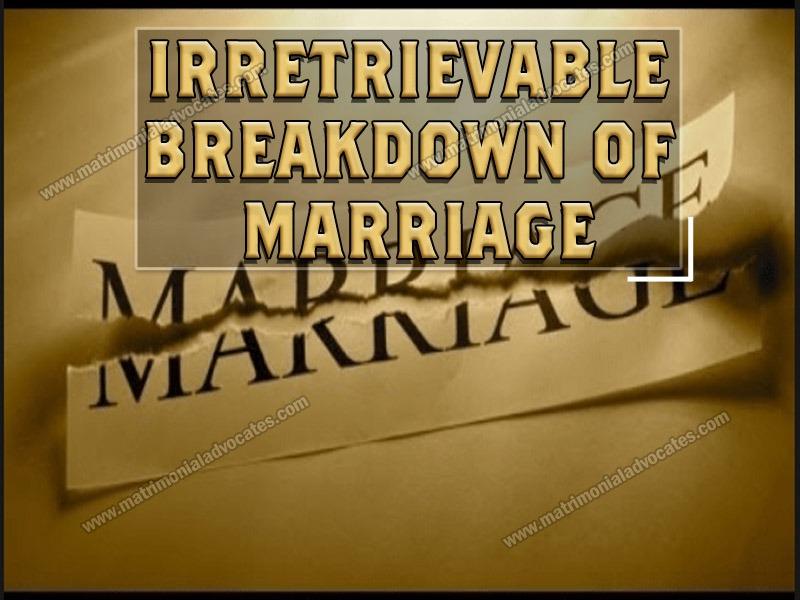
INTRODUCTION
Marriage is one of the important institutions of Society. In Hindus Marriage is considered as sacrament which is indissoluble and eternal. In Hindus concept of divorce was not there in starting, Divorce as a concept added in Hindu Marriage Act, 1955 prior to this Act there was no such concept of divorce in Hindus. A marriage solemnized, whether before or after the commencement of the Hindu Marriage Act, 1955 can only be dissolved by a decree of divorce on any of the grounds enumerated in Section 13 of the Act.
Under the Sharia law, marriage is a sanctified contract which is solemnized on the payment of Mehr from the husband to the wife. In the Muslim law, polygamy is not unconditionally conferred and is based on the precedent condition about the capacity of the husband to do justice between his co-wives. However under the Muslim personal law there is very little scope for wives to be set free from the bond of marriage at their own will.
In India there exist no uniform civil code and the marriages are mostly governed by personal laws of the individuals. Such personal law is either codified and enacted by the government or is practiced as custom and is recognized by the judiciary. In the changing times the laws have given equal status and rights to women and have had a tremendous impact on the institution of marriage which is no longer treated as an indissoluble union. There has been a considerable legislative and judicial interference in the gamut of matrimonial laws all over the world. Divorce, which was earlier regarded as an evil, has codified laws which are being substantially modified and liberalized. People have become more aware about individual autonomy and prefer to be free of the matrimonial bondage if things do not seem to work out.
THEORIES OF DIVORCE
The common theories on which the divorce is generally granted or seeked are as follows:
Fault Theory – Under the Fault theory or the offences theory or the guilt theory, marriage can be dissolved only when either party to the marriage has committed a matrimonial offence. It is necessary to have a guilty and an innocent party, and only innocent party can seek the remedy of divorce. However the most striking feature and drawback is that if both parties have been at fault, there is no remedy available.
Consent Theory – The consent theory accepts that parties to a marriage could together decide to end the relationship. This is the concept of “divorce by mutual consent.” The procedure for divorce under this theory is that the parties live apart for a specified period of time, and also require that such application be made in two stages, before the divorce is confirmed. Importantly, related but critical issues such as maintenance, distribution of common properties and custody of children are expected to be decided by the parties.
No Fault Theory – No fault theory is based on circumstances where the parties have become indifferent to each other and there exists no fault of both the parties rather the circumstances are such which does not enable them to live a happy matrimonial life. Irretrievable breakdown of marriage gets its origin from this theory. It is a situation where in the marriage between the parties has broken down to the extent that there is no possibility of reconciliation and it becomes better if the parties do not fulfill matrimonial obligation towards each other.
Therefore Irretrievable Breakdown of Marriage can be defined as a situation that exists when either or both spouses are no longer able or willing to live with each other, thereby destroying their husband and wife relationship with no hope of resumption of spousal duties. There exists failure in the matrimonial relationship or such circumstances adverse to that relationship that no reasonable probability remains of the spouses remaining together as husband and wife for mutual comfort and support.
POSITION IN INDIA
The Indian codified laws nowhere expressly talks about irretrievable breakdown of marriage as ground for divorce. Section 13 of the Hindu Marriage Act, 1955 provides for the grounds for the Divorce. Section 27 of the Special Marriage Act, 1954 also provides grounds for divorce but it is applicable only if the marriage is solemnized under the said Act. Section 2 of The Muslim Dissolution of Marriage Act also provides for various grounds of divorce to a Muslim woman. However none of the legislation expressly deals with irretrievable breakdown of marriage as a ground for divorce.
The Law Commission of India in its 71st Report titled “The Hindu Marriage Act, 1955 – Irretrievable Breakdown of Marriage as a Ground of Divorce” recommended amendments in the Hindu Marriage Act to make irretrievable breakdown of marriage as a new ground for granting divorce among the Hindus. However it was never accommodated. Similarly in it 217th report again the Law Commission of India again upon intensive research and examining of various judgments suggested that of the Supreme Court and High Courts on the subject and is of the view that “irretrievable breakdown of marriage” should be incorporated as another ground for granting divorce under the provisions of the Hindu Marriage Act, 1955 and the Special Marriage Act, 1954. The Court before granting a decree for divorce on the ground that the marriage has irretrievably broken down should also examine whether adequate financial arrangements have been made for the parties and children.
Accordingly the parliament introduced marriage law (amendment) Bill, 2010 which contained irretrievable breakdown of marriage as a ground for divorce. However the bill never passed and therefore has not taken a shape of law.
However the judiciary has actively taken cognizance of the fact that marriages do get irretrievably broken down and it becomes necessary in societal interest to dissolve such relationships. Therefore the Supreme Court at multiple instances has granted divorce on the ground of irrevocable breakdown of marriage under Article 142 of the Constitution.
JUDICIAL ACTIVISM
Article 142 of the Constitution of India recognizes power of the Supreme Court to give such orders which are necessary to secure ends of justice. Article 142 is read as follows:
Art. 142: Enforcement of decrees and orders of Supreme Court and unless as to discovery, etc
( 1 ) The Supreme Court in the exercise of its jurisdiction may pass such decree or make such order as is necessary for doing complete justice in any cause or matter pending before it, and any decree so passed or orders so made shall be enforceable throughout the territory of India in such manner as may be prescribed by or under any law made by Parliament and, until provision in that behalf is so made, in such manner as the President may by order prescribe
( 2) Subject to the provisions of any law made in this behalf by Parliament, the Supreme Court shall, as respects the whole of the territory of India, have all and every power to make any order for the purpose of securing the attendance of any person, the discovery or production of any documents, or the investigation or punishment of any contempt of itself.
Therefore by the powers conferred to it Supreme Court of India has power to grant divorce if it believes a marriage has broken irretrievably. Below are certain judgments dealing with the same :
In V. Bhagat vs D. Bhagat 1994 AIR 710 the supreme court while granting divorce on the grounds of irretrievable break down of marriage held that “Before parting with this case, we think it necessary to append a clarification. Merely because there are allegations and counter allegations, a decree of divorce cannot follow. Nor is mere delay in disposal of the divorce proceedings by itself a ground. There must be really some extra- ordinary features to warrant grant of divorce on the basis of pleading (and other admitted material) without a full trial. Irretrievable breakdown of the marriage is not a ground by itself. But while scrutinizing the evidence on record to determine whether the ground(s) alleged is/are made out and in determining the relief to be granted, the said circumstance can certainly be borne in mind. The unusual step as the one taken by us herein can be resorted to only to clear up an insoluble mess, when the Court finds it in the interest of both parties.”
In Naveen Kohli
vs Neelu Kohli 2006 4 SCC 558 the Supreme made the
following observations “Irretrievable
Breakdown of Marriage Irretrievable breakdown of marriage is not a ground for
divorce under the Hindu Marriage Act, 1955. Because of the change of
circumstances and for covering a large number of cases where the marriages are
virtually dead and unless this concept is pressed into services, the divorce
cannot be granted. Ultimately, it is for the Legislature whether to include
irretrievable breakdown of marriage as a ground of divorce or not but in our
considered opinion the Legislature must consider irretrievable breakdown of
marriage as a ground for grant of divorce under the Hindu Marriage Act, 1955. The 71st Report of the Law
Commission of India briefly dealt with the concept of Irretrievable breakdown
of marriage. This Report was submitted to the Government on 7th April, 1978. We
deem it appropriate to recapitulate the recommendation extensively. In this
Report, it is mentioned that during last 20 years or so, and now it would
around 50 years, a very important question has engaged the attention of
lawyers, social scientists and men of affairs, namely, should the grant of
divorce be based on the fault of the party, or should it be based on the
breakdown of the marriage? The former is known as the matrimonial offence
theory or fault theory. The latter has come to be known as the breakdown
theory.”
Further while granting the divorce the
court held that “Once the parties have
separated and the separation has continued for a sufficient length of time and
one of them has presented a petition for divorce, it can well be presumed that
the marriage has broken down. The court, no doubt, should seriously make an
endeavour to reconcile the parties; yet, if it is found that the breakdown is
irreparable, then divorce should not be withheld. The consequences of
preservation in law of the unworkable marriage which has long ceased to be
effective are bound to be a source of greater misery for the parties. A law of
divorce based mainly on fault is inadequate to deal with a broken marriage.
Under the fault theory, guilt has to be proved; divorce courts are presented
concrete instances of human behaviour as bring the institution of marriage into
disrepute. We have been principally impressed by the consideration that once
the marriage has broken down beyond repair, it would be unrealistic for the law
not to take notice of that fact, and it would be harmful to society and
injurious to the interests of the parties. Where there has been a long period
of continuous separation, it may fairly be surmised that the matrimonial bond
is beyond repair. The marriage becomes a fiction, though supported by a legal
tie. By refusing to sever that tie the law in such cases do not serve the
sanctity of marriage; on the contrary, it shows scant regard for the feelings
and emotions of the parties.Public interest demands not only that the married
status should, as far as possible, as long as possible, and whenever possible,
be maintained, but where a marriage has been wrecked beyond the hope of
salvage, public interest lies in the recognition of that fact.Since there is no
acceptable way in which a spouse can be compelled to resume life with the
consort, nothing is gained by trying to keep the parties tied for ever to a
marriage that in fact has ceased to exist.”
In Anil Kumar Jain vs Maya Jain 2009 SC while granting the divorce on the ground of irretrievable breakdown of marriage held that “In the ultimate analysis the aforesaid discussion throws up two propositions. The first proposition is that although irretrievable break-down of marriage is not one of the grounds indicated whether under S. 13 or 13- B of the Hindu Marriage Act, 1955, for grant of divorce, the said doctrine can be applied to a proceeding under either of the said two provisions only where the proceedings are before the Supreme Court. In exercise of its extraordinary powers under Art. 142 of the Constitution the Supreme Court can grant relief to the parties without even waiting for the statutory period of six months stipulated in S. 13 of the aforesaid Act. This doctrine of irretrievable break-down of marriage is not available even to the High Courts which do not have powers similar to those exercised by the Supreme Court under Art. 142 of the Constitution. Neither the civil courts nor even the High Courts can, therefore, pass orders before the periods prescribed under the relevant provisions of the Act or on grounds not provided for in S. 13 and 13 B of the Hindu Marriage Act, 1955. The second proposition is that although the Supreme Court can, in exercise of its extraordinary powers under Art. 142 of the Constitution, convert a proceeding under S 13 of the Hindu Marriage Act, 1955, into one under S.13 B and pass a decree for mutual divorce, without waiting for the statutory period of six months, none of the other Courts can exercise such powers. The other Courts are not competent to pass a decree for mutual divorce if one of the consenting parties withdraws his/her consent before the decree is passed. Under the existing laws, the consent given by the parties at the time of filing of the joint petition for divorce by mutual consent has to subsist till the second stage when the petition comes up for orders and a decree for divorce is finally passed and it is only the Supreme Court, which, in exercise of its extraordinary powers under Art. 142 of the Constitution can pass orders to do complete justice to the parties.”
CONCLUSION Even though divorce through mutual consent as remedy exists but it differs from the concept of irretrievable breakdown of marriage. It is important to note that “mutual consent” requires the consent of both the parties and if one or the other does not cooperate, the said ground is not available. ‘Irretrievable breakdown of marriage’, on the other hand, is a ground which the Court can examine and if the Court, on the facts of the case, comes to the conclusion that the marriage cannot be repaired/ saved, divorce can be granted. The grant of divorce is not dependent on the volition of the parties but on the Court coming to the conclusion, on the facts pleaded, that the marriage has irretrievably broken down. Therefore there exists a need accommodate irretrievable breakdown of marriage as a ground for divorce in order to prevent mental agony and suffering to the parties to a failed marriage.





